The Big Bookend: Interview with Fiona Gell
May 29, 2015
Over the past four years, Fiona Gell and her team have developed for Leeds a major book festival from scratch – focused particularly in the City Centre.
The Leeds Big Bookend Festival launched in 2012, and in subsequent years has included a multitude of events and some of the greatest Leeds writers, including Tony Harrison and Alan Bennett, alongside more community-based work.
The Leeds Big Bookend in 2015 includes a year-long programme of events, most of which are concentrated in the first week of June.
Mike Farren chatted to Fiona ahead of this year’s festival…
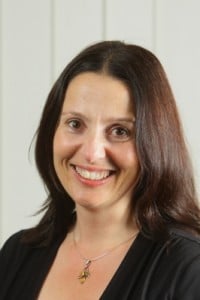
[Image: Fiona Gell]
TSOTA: You call The Big Bookend “A Rock Festival for Words”. What makes it like a rock festival?
FG: What we’re trying to do is raise the profile of literature, books, and words in Leeds; and if we were just presenting ourselves as a literature festival, I think that puts people off. We’re trying to be something slightly different, of wider appeal to the community in the centre of Leeds. We wanted something that would better capture the sense of Leeds and make it more inclusive. Music is a brilliant link for that. It’s about forging a different identity to a traditional literature festival.
TSOTA: Do any of the authors have outrageous riders?
FG: No, they’re all absolutely brilliant and they never ask for anything, really
TSOTA: The Big Bookend website tells how an event with author Anthony Clavane in 2011 inspired the festival. Why were you, and the others involved, moved to create a festival?
FG: I’ve lived in Leeds since the 1980s, and in that time, I’ve never known of a book festival for the centre of Leeds. It’s frustrated me that I have to go elsewhere to attend events like that. I’m a massive book fan and it would mean a lot for me to have a book festival on my doorstep. Anthony talks a lot about identity and about coming from Leeds and what that means. He was asking, with Leeds being the size it is, with its diversity and the interest that must be there, why hasn’t Leeds got a book festival? We had a chat with Anthony, and it was a bit of a no-brainer, really. We got together with Waterstones, the library and one or two other people and just gave it a go. We had our first festival in 2012, and we’ve had them ever since. We go with what we can manage, because we’re all volunteers, we all have day-jobs and it’s really hard to make the time to do all this, but we’re all driven by a passion for writing.
TSOTA: What’s your personal involvement in The Big Bookend? How do you make this fit in with the day job?
FG: I’m laughing because I’m not sure I know how I do that either, really. I’m coordinator of the festival, so I bring it all together. I work with a team of between eight and ten volunteers and at the moment we come together every week, but usually once a month in the planning stages. We discuss where we want to go and what we want to do and I put it all together, but it’s not all about me. I couldn’t do this all on my own. I also work in Special Collections at Brotherton Library, so it’s a juggling act, but it’s driven by passion for words and for making something happen in the community I live in. There’s loads of stuff going on, but there’s no focus for it and that’s what we’ve tried to do.
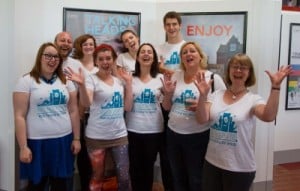
[Image Credit: Steve Evans]
TSOTA: How long is each festival in the planning?
FG: We haven’t even got to this one yet and we’re thinking about what comes after. We have a children’s day in November, so we’re thinking about that now. We’re also thinking about 2016; what might be the theme and what we could do for it. It never goes away.
TSOTA: What are the challenges that the public might not be aware of?
FG: I think it’s the amount of time that you need to put into running a festival. We’re always talking to people and our partners and writers. That takes up a lot of time. It’s hugely enjoyable and you get to meet some fascinating people. It forces you out of your comfort zone and into a whole new area of interest and knowledge.
TSOTA: There seems to have been a huge growth in the number of literary festivals in the last few years. Do you have any theories about that?
FG: I don’t think that people’s love of books will ever go away. It’s a great thrill to meet some of the writers I’ve been reading for years. I think people love books and want to meet those who have written them, make that human contact and find things out about the writing that they would never have by reading their books. I think writers give a whole insight into their work, and a different voice.
TSOTA: You’re not a ‘literature’ festival, you’re a ‘book’ festival. Is that a deliberate move?
FG: Again, it’s an identity thing. I believe that when you label yourself, you should really make it obvious what you are. We didn’t want the ‘literature’ tag, so we said ‘book’. Everybody understands what that is. We took our name from two buildings that were at the bottom end of Eastgate, Hoagy’s Bar and the mirror of that building on the other side: they were known as ‘the bookends’.
TSOTA: The theme of the 2015 festival is “Mapping Leeds”. How do you hope this mapping theme will play out?
FG: Leeds is so diverse it’s difficult to capture it, with all the different communities and everything that goes on culturally. There are things in the programme like Philippa Lester and Diane Saunders talking about the Jewish community. Chris Nickson talks about forgotten Leeds stories from the past, going back hundreds of years. People like Frances Brody are talking about the Leeds children’s charity and the Silverdale Camp. It’s trying to pull together diverse elements but to still talk about Leeds. If you look at a map of Leeds and look at all the differences there, that’s what we’re trying to reflect.
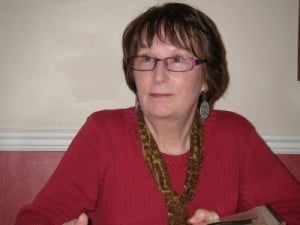
TSOTA: How would you characterise the Leeds Literary scene at the moment?
FG: For all the years I’ve lived here, there’ve been things going on under the surface. What we’ve tried to do is make it a bit more overt. So on the literary scene, things starting to emerge include Liars’ League, and they’re doing a slot at the festival. There are people like Fictions of Every Kind, which is a literary social group who meet monthly and have a big social event and invite authors to read. There are so many writers in Leeds and we just scratch the surface. It’s all there, but it’s not shouted about. We’re trying to shout about the city, but also the bigger picture of the 2023 Capital of Culture bid. I think that could unify the writing elements within the city and give us a greater voice. There’s so much talent there, but it’s just not recognised. I think that 2023 might just give us that opportunity to burst onto the scene.
TSOTA: Looking at the website, there is a lot of general information about literature in Leeds. Does The Big Bookend acts as a hub? Is that an aspiration?
FG: The twin aims have always been to celebrate Leeds’s rich literary past, but importantly to help the young talent coming through. If we can provide a platform for doing that, then I’m really delighted. Because where else do they go? I don’t know of anything that exists that will give people a voice. I’m sure people may look at our website and think it’s not much, but it’s a starting point. It would be an aspiration to give people more of a focus. The only problem for us is that we’re all volunteers and our time is limited, but that would be brilliant.
TSOTA: Ex-Granta editor John Freeman characterised Leeds as being “completely out of the literary world”.
FG: I think it was maybe 2013 when he made that comment. We were like, “You’ve got no idea!” We weren’t greatly pleased, but actually, it gave us quite a lot of debating material, which was great. But it’s nonsense, and ill-informed.
TSOTA: Particularly leading up to 2023, do you think there’s a sense that Leeds is starting to punch its weight now in the writing world?
FG: Definitely. Leeds has traditionally never shouted about itself. I don’t know if that’s because of the Leeds character. But there’s so much good talent here that we do need to shout more. We need that kind of platform to kill this myth of the London-centric always being the best, because it’s just not true. TSOTA this week published an article about looking at the London myths, and how Leeds, despite what southerners think, is a great place to live.
TSOTA: You have had some big names during the festival’s existence. What have been your highlights so far? The great authors, or any unexpected gems?
FG: It’s always brilliant to have a big name, and that’s fantastic – hearing Alan Bennett speak. And with Tony Harrison I met my hero. One thing that stood out for me last year was the Leeds Story Cycle. That embodied what The Bookend’s all about. It was working with groups like asylum seekers, refugees, addicts, and giving them a voice. The group would work with an established writer and a story would come out, the writer would write it and it would be presented and then it got published in The Leeds Story Cycle. I was there for the readings and it was so moving. What I love about that was bringing together communities and people who would never have spoken to each other. They were all in that room telling us something really hidden about themselves. Out of that has come the play that we’re premiering this season, Drink with a Chimp. That story came out of a group called Spacious Places, who told us their story of addiction and that has been taken by theatre group Common Chorus, and made into a play. It premieres at Bookend. That, to me, perfectly encapsulates what we’re trying to do.
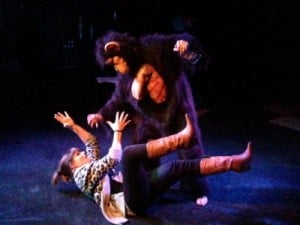
TSOTA: This year’s festival seems more ‘grassroots’. Was that a deliberate decision?
FG: We decided that it’s great to have a big name, but it’s not necessary every time. Some years, you’re going to champion locals more than having big names on your festival list. I think we’ve done really well this year in highlighting some of the great local writing talent. It’s definitely a smaller programme, but it has to be manageable for us. You can’t devote a full-time team to it: that’s an aspiration for the future. There’s definitely a focus on Leeds creativity. I hope it inspires folk to read more, to write more, and to come out and support book events more.
TSOTA: Will you continue to be involved in such a central role?
FG: I hope so. I’ve done it for four years and it’s a huge challenge. I love meeting new people and working with our volunteers. Just making something happen for the community is fantastic.
By Mike Farren
Website: www.bigbookend.co.uk
Email: [email protected]
Tel: 0113 2379900
Facebook: facebook.com/BigBookend
Twitter: @BigBookend


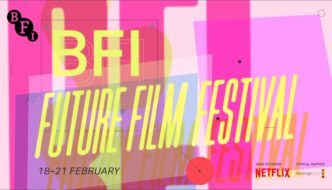

Comments